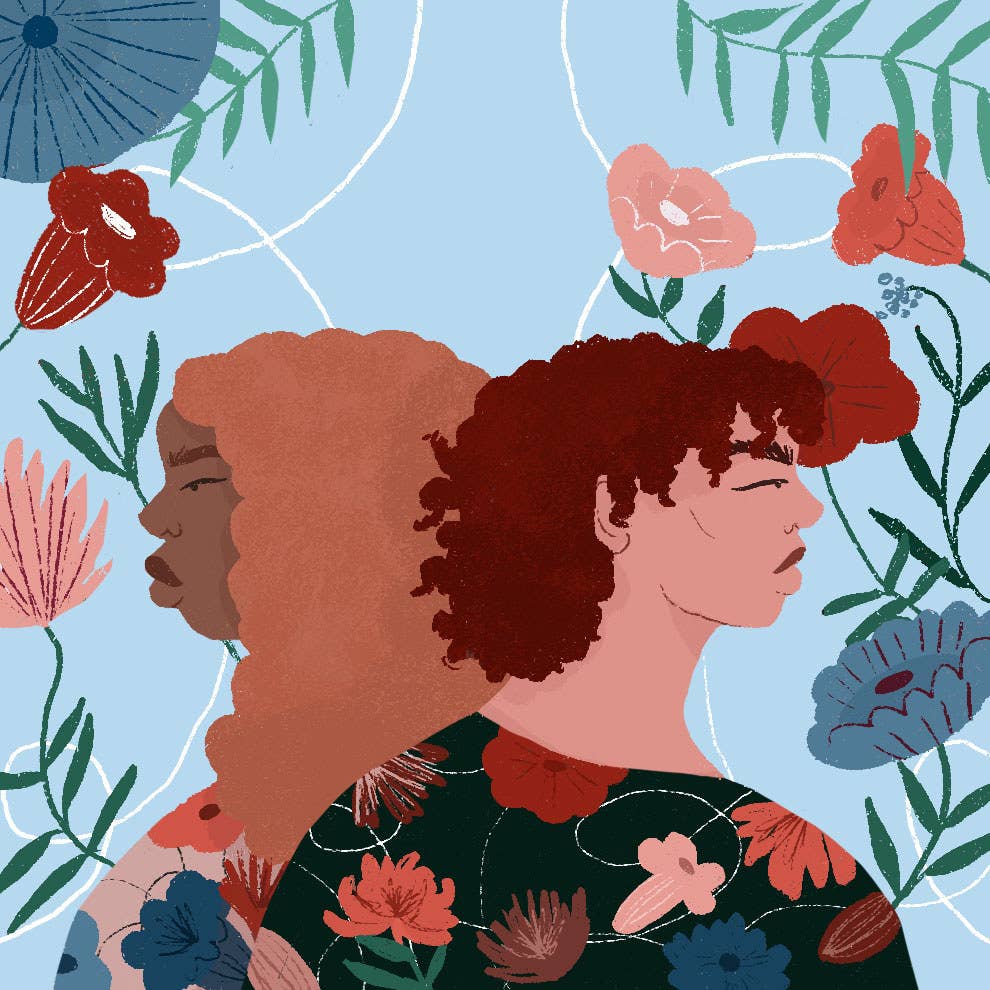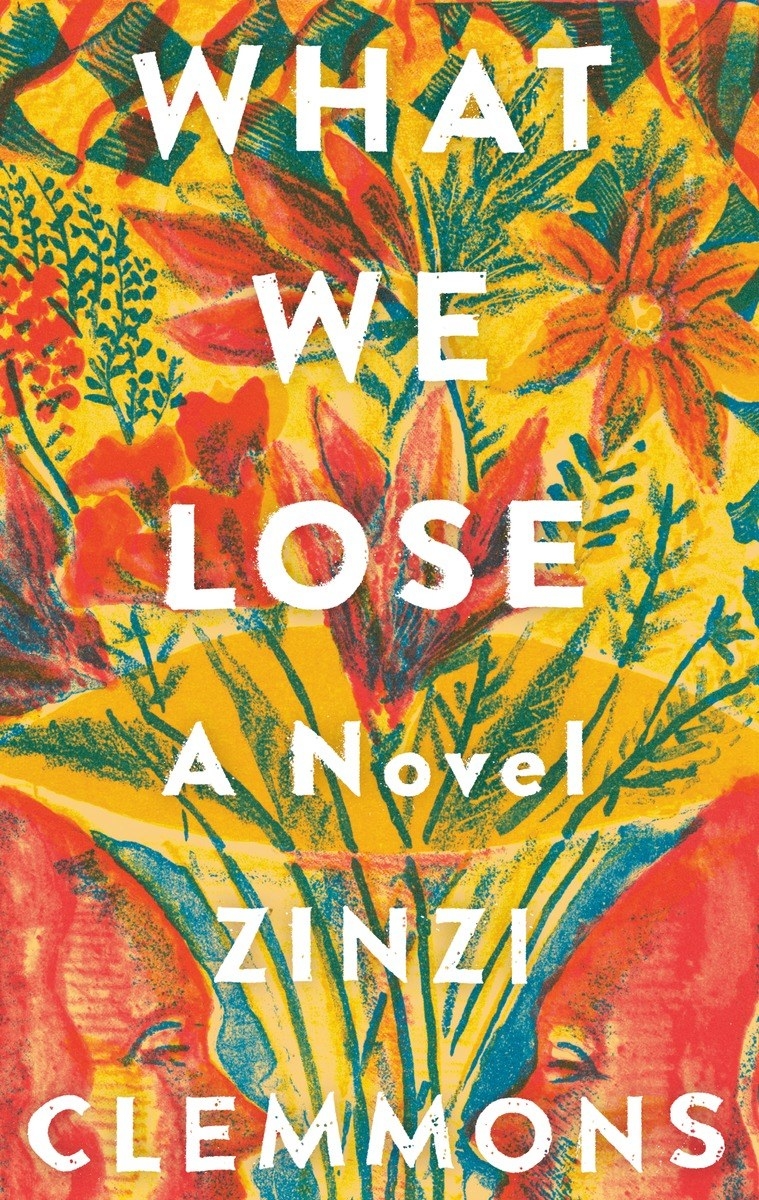
My mother cautioned that I would never have true relationships with darker-skinned women. These women would always be jealous of me, and their jealousy would always undermine our friendship. She told me to be careful if I ever went into the city, that the rough teenage ones would slash my face with a razor blade. When I fought with a friend, my mother would inquire about her complexion. If the friend was darker, she would nod her head, a look of “I told you so” on her brow.
I asked her how she could have such racist views of women. Weren’t we all sisters?
“That’s just how it is,” she told me blankly.
My mother was a shade darker than me, with almond-shaped eyes and hair that was slightly coarse but straightened out easily with an iron. She was identifiably black, more than I ever was (I am often mistaken for Hispanic or Asian, sometimes Jewish), but categorically light-skinned. Sometimes people thought she was Spanish too, and dark enough where we often encountered the uncomfortable pause of a white woman in my hometown trying to discern our relationship: mother/daughter or hired help/charge.
My mother’s views imbued my friendships with political importance — if I could maintain a relationship with a darker-skinned woman, I would prove her wrong. And so I pursued these relationships with fervor.
I’ve often thought that being a light-skinned black woman is like being a well-dressed person who is also homeless.
I’ve often thought that being a light-skinned black woman is like being a well-dressed person who is also homeless. You may be able to pass in mainstream society, appearing acceptable to others, even desired. But in reality you have nowhere to rest, nowhere to feel safe. Even while you’re out in public, feeling fine and free, inside you cannot shake the feeling of rootlessness. Others may even envy you, but this masks the fact that at night, there is nowhere safe for you, no place to call your own.
I see you looking at me. I know how you see me.
Aminah had been my best friend since elementary school. Her father was the administrator of continuing studies at the same college where my father taught. Together they were two of only five black faculty, causing them to form an immediate bond out of a shared, slightly traumatizing experience. Aminah and I went to swimming lessons and summer camp together as children; as teenagers we drifted in and out of each other’s orbit at school, but our bond outside of that restrictive environment remained familial. Even if, on the surface, we seemed as dissimilar as possible, a calm, unshakeable current of love always ran just underneath.
Aminah was a preternatural beauty. With long, golden brown hair that sat in perfectly tame spiral curls, a slight frame, and clear mahogany skin, she fit in easily among the prettiest girls in school. She was mild mannered, though, quietly studious, and kind. She kept her stubborn streak expertly disguised. I always had a hard time maintaining any semblance of togetherness, from my hair to my clothes to my opinions that always seemed to make themselves known in the worst company at the worst possible moments. I had the feeling that I embarrassed Aminah, so I saved her the trial of having to reject me socially by leaving her alone at school. It felt like a foregone conclusion when one of the boys in our class fell in love with Aminah — one of the handsome boys from a good family who owned a lake house in one of the fancier vacation towns upstate. His name was Frank.
At first, there were rumors of tension because Aminah was black and Frank was not just white but a WASP, and his family had the type of standing that a black girlfriend could tarnish. At first, Aminah told me, Frank’s family didn’t invite her to the house, even though they had tea with his older brother Paul’s girlfriend every Sunday afternoon.
The story that wasn’t told was that Aminah’s family members were just as wary of the union as Frank’s, because even though they were now bourgeois, Aminah’s father was an activist and agitator back in the day, just like my parents, and they always hoped — assumed — that her looks and education meant she would have her pick of suitors, and that pick would be black, just like her.
Over time, these tensions soothed into the background, and Aminah and Frank became one of the envied couples at our high school, leaving room for all the other relationship tensions to resume their rightful place in the foreground.
I started listening to hard rock music with emotional lyrics, like my friends. We didn’t have cable, so I spent hours at their houses after school, watching music videos on MTV and clearing their pantries of sugary snacks. My parents would never buy snacks because they were too practical and too busy for anything more than three meals per day. “Snack” was a word that never entered their vocabulary. On weekends, I would take the commuter train into the city, sit in coffee shops, and smoke cigarettes while reading old paperbacks. I told my parents I was going to the central library branch downtown to study, which was partly true. I was studying for my grown-up life, the one I would have when I finally left their house.
Most of my friends were school nerds, but some of them also had piercings and tattoos. My friend Friona had green hair. My mother liked her the least of my other friends who she called freaks. I told my mother, with practiced cool, not to be so dramatic. The few times I tried this, it made her boil over.
She insisted that straight hair was beautiful, and the kind she and I were born with — kinky, curly, that grew up and out instead of down — was ugly.
I never got up the courage to color my hair, but I often let it go curly and wild, refusing to straighten or restrain it from the natural way it fell on my head. I had the nerve to like my hair just the way it was. My mother called me untidy. “I don’t know why you do this to yourself,” she said, huffing and rolling her eyes. What she meant was, why do you do this to me? My self-expression obviously caused her pain. From the time I was five until high school, she dragged me to the hairdresser every two months to have my hair chemically straightened. She insisted — explicitly and implicitly — that straight hair was beautiful, and the kind she and I were born with — kinky, curly, that grew up and out instead of down — was ugly.
“That’s what a pretty girl looks like,” she told me when I came home from the hairdresser, my hair shining, my scalp in ravages. Only the thought that my mother would find me beautiful — the anticipation of her approval and the peace it would bring — would comfort me through the pain the next time I sat in the hairdresser’s chair, to have it done to me all over again.
My high school boyfriend took me to prom in his beat-up hatchback Toyota. He was decidedly unspectacular — a C student who went on to a local university and dropped out after two years. He never left his small storefront apartment in our hometown. But he was handsome, with a strong square jaw, sinewy arms, and smooth brown skin. He was polite, but with a bit of edge and tastes that ran toward the alternative, the slightly dark. We met in art class.
When I finished dressing, he was downstairs in the living room, talking to my father. They were like a teen movie come to life, my father with his chest out, protectiveness personified, and Jerome shrinking in his tuxedo, visibly nervous. “You look beautiful,” he said, sighing when I came downstairs. In my head, I wondered at how my movie scene felt complete.
We never had sex because I was too afraid and I wasn’t in love with him. I was still young, and in my mind sex and love were inextricably linked. A few months into our relationship, I had my college acceptance in hand and began to dream about the handsome, worldly boys with whom I would be able to discuss literature and obscure music. I imagined how easy sex would be with them, how natural and adult it would feel, as opposed to what felt like a struggle between my desire and better judgment with Jerome.
But he made my parents happy in a way that I could never approximate on my own. When I was with him, a piece of me was in place, and I was a whole, acceptable human being to my mother. I was in some ways normal, and they could be happy for that. When Jerome and I broke up, it took me months to tell my parents. I would lie to them and tell them I was going to meet him when I was planning to see my girlfriends. After I revealed the split, my mother still asked about Jerome.
“He’s leaving college,” I would say.
“But he was so nice,” my mom would say. ●

Zinzi Clemmons was raised in Philadelphia by a South African mother and an American father. She is a graduate of Brown and Columbia universities, and her writing has appeared in Zoetrope: All Story, The Paris Review Daily, Transition, and elsewhere. She is a cofounder and former publisher of Apogee Journal, a contributing editor to Literary Hub. She has been in residence at the MacDowell Colony, Bread Loaf, the Fine Arts Work Center in Provincetown, and the Dar al-Ma’mûn, Morocco. Clemmons lives in Los Angeles with her husband.
To learn more about What We Lose, click here.
